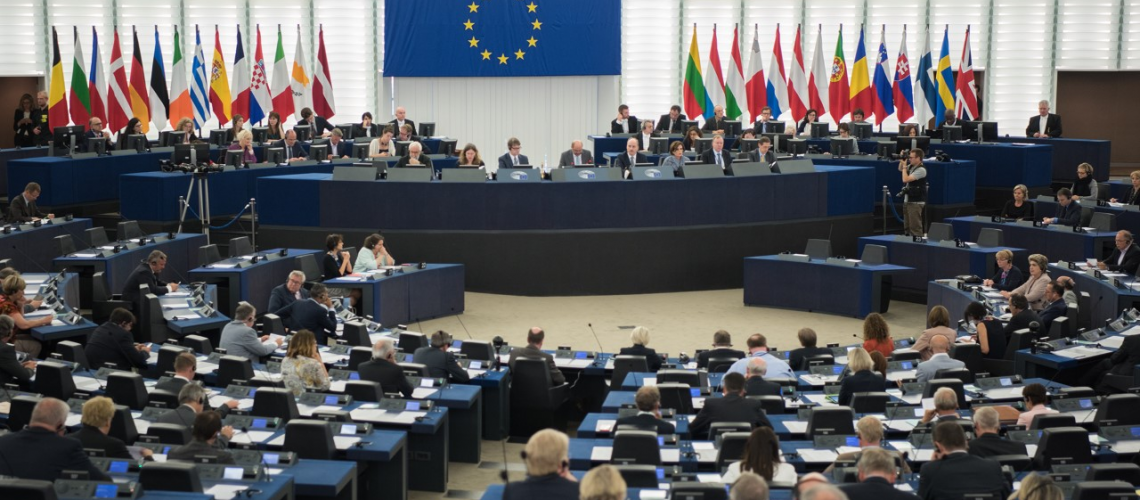MEPs are calling for binding legislation that makes companies accountable for any violations of social and environmental rights in their supply chains. The European Commission plans to submit a draft directive in June.
During its plenary session on 10 March 2021, the European Parliament adopted a resolution on corporate due diligence – corporate social responsibility and corporate accountability – by a large majority (504 votes in favour, 79 against, 112 abstentions). MEPs are calling on the Commission to submit a bill to ensure that companies are held legally accountable for the consequences of their business activities all around the world. “We refuse to accept that deforestation or forced labour are part of global supply chains,” says Lara Wolters, Member of the European Parliament and rapporteur of the text adopted by the Parliament.
Companies operating in the EU should therefore identify, monitor, prevent and address any risks related to human rights violations (including social and labour rights), environmental damage (deforestation, etc.) and seriously inadequate governance (corruption, etc.). The initiators also propose that companies be held accountable for their own actions and those of their suppliers and subcontractors throughout their entire supply chain.
They also propose implementation obligations, such as establishing an internal whistleblower mechanism, stakeholder consultation and mapping out the supply chain. The measures taken must be proportionate to the likelihood and severity of the impact, the sector in which the activity takes place, the scope and length of the chain and the size of the company. The rules will apply to all large companies, publicly listed small or medium-sized companies and companies that share ‘risky’ supply chains with larger companies. Defining what is meant by an SME with risky supply chains will not be easy and SMEs can use technical assistance to meet the requirements.
The European Parliament is calling for the legislation because: “we believe that voluntary due diligence standards have their limitations and have not led to significant progress in protecting human rights, preventing environmental damage and providing access to justice”. In 2020, the Commission published a study that showed that only one in three companies in the EU is currently taking some form of due diligence measures.
Member of the European Parliament Raphaël Glucksmann describes it as follows: “Today we live in a world where Nike, Zara and associates are in fact not responsible for anything because they don’t produce anything themselves. And what does this lead to? To the violation of human rights, the nullification of social rights and the destruction of the planet. We have to put an end to this.”
Sanctions on the horizon
The resolution stresses the need for sanctions and to ensure victims have access to legal remedies before the European courts.
Companies can be prosecuted via civil litigation, but not criminal prosecution, and sentenced to pay damages caused by their supply chain, unless they can demonstrate that they have acted with due care and taken measures to prevent the damage.
Parliament is also calling for measures to be adopted that prohibit the importation of products linked to practices that seriously violate human rights, including forced or child labour.
Draft legislation from the Commission possibly before summer
This ambitious text is supported by Justice Commissioner Didier Reynders, who may be submitting draft legislation before the summer recess.
This of course does not mean that the text that will eventually be adopted will meet all the demands of the MEPs. In the meantime, different lobbyists will certainly be working hard and Member States will need to be convinced, as they are not all on the same page. In the Netherlands, current legislation only applies to child labour; in France only to large companies. According to German NGOs, the agreement recently reached by the German government neglects environmental risks and damage, and likewise fails to provide legal protection in German courts for the victims of human rights violations.
To date there is no law in Belgium but civil society has published a memorandum and 60 companies have sent a letter to the Belgian government calling for a national legal framework for corporate due diligence. These companies believe that doing business on a global scale with respect for human rights and the environment should be the norm.
There is still a long way to go, but transposing the key demands of the European Parliament into law will be an important step towards a more sustainable economy that respects human rights.
Samuel Poos


